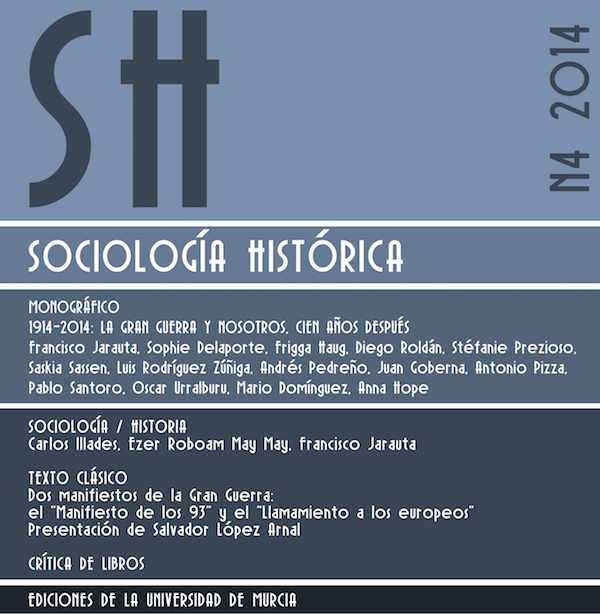The Conquest of Perception. Cinema and the great War in the aesthetics of Paul Virilio
Abstract
After the end of the Second World War, the capitalist model of knowledge and production of the economy of war reached economy, politics and culture. Therefore, a strategic alliance was created between an incipient military- industrial network, reported decades afterwards by Eisenhower, and a still precarious film industry which put at the disposal of power all its ability of symbolic creation.
Virilian thesis proposes that in much the same way the acceleration of firearms and war technology transformed the battlefield, the visual acceleration imposed by the film camera would begin to transform the viewer’s natural perceptual field as of 1914. Thus, the phenomenological experience of the gaze is diluted as well as the reconciliation of the image with its referents is almost impossible. It is a perfect separation according to which the Conquer of the Perception can be described in accordance to three crucial moments in the development of war technologies: firstly, the phenomenological deregulation of the perception which accompanied filmmaking during the Great War. Secondly, the industrialization of the gaze and the in live experience imposed after the Second World War and especially during the Vietnam War and, lastly, the current automation of vision and the creation of synthesis images in the contemporaneous virtual inforwar spread through information networks (Virilio, 1989). In this article we analyse from a virilian prism the film production of the first of these phases.
Downloads
-
Abstract953
-
PDF (Español (España))355
Las obras que se publican en esta revista están sujetas a los siguientes términos:
1. El Servicio de Publicaciones de la Universidad de Murcia (la editorial) conserva los derechos patrimoniales (copyright) de las obras publicadas, y favorece y permite la reutilización de las mismas bajo la licencia de uso indicada en el punto 2.
2. Las obras se publican en la edición electrónica de la revista bajo una licencia Creative Commons Reconocimiento-NoComercial-SinObraDerivada 4.0 España (texto legal). Se pueden copiar, usar, difundir, transmitir y exponer públicamente, siempre que: i) se cite la autoría y la fuente original de su publicación (revista, editorial y URL de la obra); ii) no se usen para fines comerciales; iii) se mencione la existencia y especificaciones de esta licencia de uso.
3. Condiciones de auto-archivo. Se permite y se anima a los autores a difundir electrónicamente las versiones pre-print (versión antes de ser evaluada) y/o post-print (versión evaluada y aceptada para su publicación) de sus obras antes de su publicación, ya que favorece su circulación y difusión más temprana y con ello un posible aumento en su citación y alcance entre la comunidad académica. Color RoMEO: verde.










